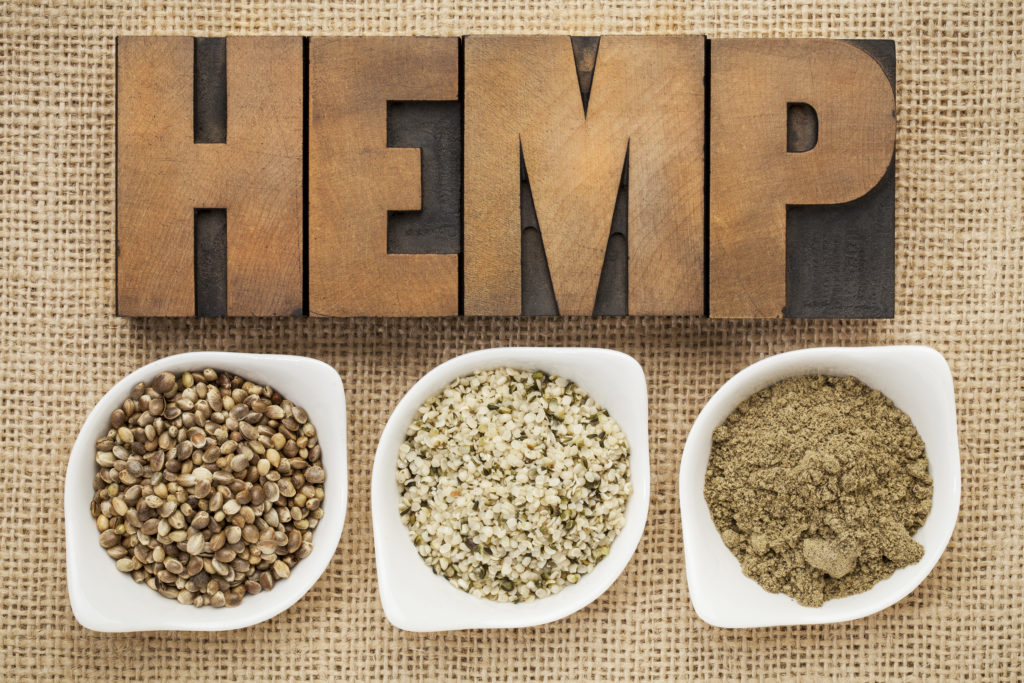
What is the difference between hemp and marijuana? One difference is the presence of an addictive, psychoactive chemical compound. Unlike marijuana, hemp doesn’t contain delta-9 tetrahydrocannabinol (THC), the compound that dulls the mind, relaxes the body, and gives the stomach a desperate craving for pizza and nachos.
By federal definition, hemp products contain no more than a 0.3 percent concentration level of THC. They contain nonpsychoactive chemical compounds known as cannabinoids, especially cannabidiol (CBD), which are purported to offer health benefits without the mind-altering effects.
Since the passage of the federal Farm Bill of 2018, however, there’s another difference between hemp and marijuana: the opportunity for North Carolina to enjoy a new, potentially lucrative agriculture industry. That’s pending the creation of a state plan for the cultivation and handling of hemp.
North Carolina will wind up with a plan eventually. If state policymakers don’t create one, the U.S. Department of Agriculture (USDA) will impose its own plan to license and regulate hemp producers. (If that sounds familiar, it’s because it’s the same gambit attempted by Obamacare to compel state compliance with insurance exchanges.)
The North Carolina Farm Act of 2019 (Senate Bill 315) would, among other things, set up this state plan. Here are several highlights of what it would do regarding hemp:
- Define hemp, hemp extracts, and a wide range of hemp products for commercial sale (but not smokable hemp). All must be within the federal defined THC level for hemp.
- Establish licenses for farmers who wish to cultivate hemp. They would be provided by the North Carolina Hemp Commission, renamed from the Industrial Hemp Commission.
- Require licensed hemp farmers to provide precise locations of their hemp fields and consent to surprise inspections of them at any time by the N.C. Department of Agriculture and Consumer Services (DACS), the State Bureau of Investigation, or local law enforcement.
- Allow possession, handling, transportation, and sales of hemp products without a license.
- Exempt hemp and its products and extracts (including smokable hemp) from the definition of marijuana in the State Controlled Substances Act, and also exempt THC found in legal hemp products from it.
- Give hemp licensees immunity from violations of the State Controlled Substances Act should their plants exceed that 0.3 percent THC threshold. They would be subject to penalties from the Hemp Commission.
- Exempt people in lawful possession of hemp products from having to pay the Unauthorized Substances Tax. (Yes, it’s doubly against the law in North Carolina to possess an illegal substance such as marijuana without paying the excise tax on it. Of course, it’s still illegal to possess it even after paying the tax. But N.C. Department of Revenue promises not to rat you out. I know; it all sounds nuts.)
- Have DACS regulate cannabinoid-related compounds and establish rules for their legal manufacturing, packaging, labeling, or holding operations.
- Impose a fine and make it a Class 1 misdemeanor to make, deliver, sell, or possess smokable hemp knowingly and intentionally. The prohibition of the sale of smokable hemp would be revisited were there to be found a way of immediately testing the THC level in hemp.
As reported by Carolina Journal, the regulations would address a current legal gray area for hemp products. It’s no longer a controlled substance at the federal level, but at the state level it’s unclear. Meanwhile, there has been a sudden influx of hemp products promising health benefits — from CBD oils to CBD-infused lotions and even foods containing CBD — but they are of questionable legality.
That there is a market for such products is evident already. But a hemp industry wouldn’t just be geared toward trendy, new, health-centered wares. Hemp products also include such items as clothing, fabric, rope, fuel, paint, paper, particleboard, plastics, and many other things.
Taking action now to regulate hemp in accordance with federal expectations would boost North Carolina agriculture. It could potentially yield a double bonus by making North Carolina a first mover in regulating hemp, and it would also help retailers and consumers here by removing any uncertainty over hemp products.




